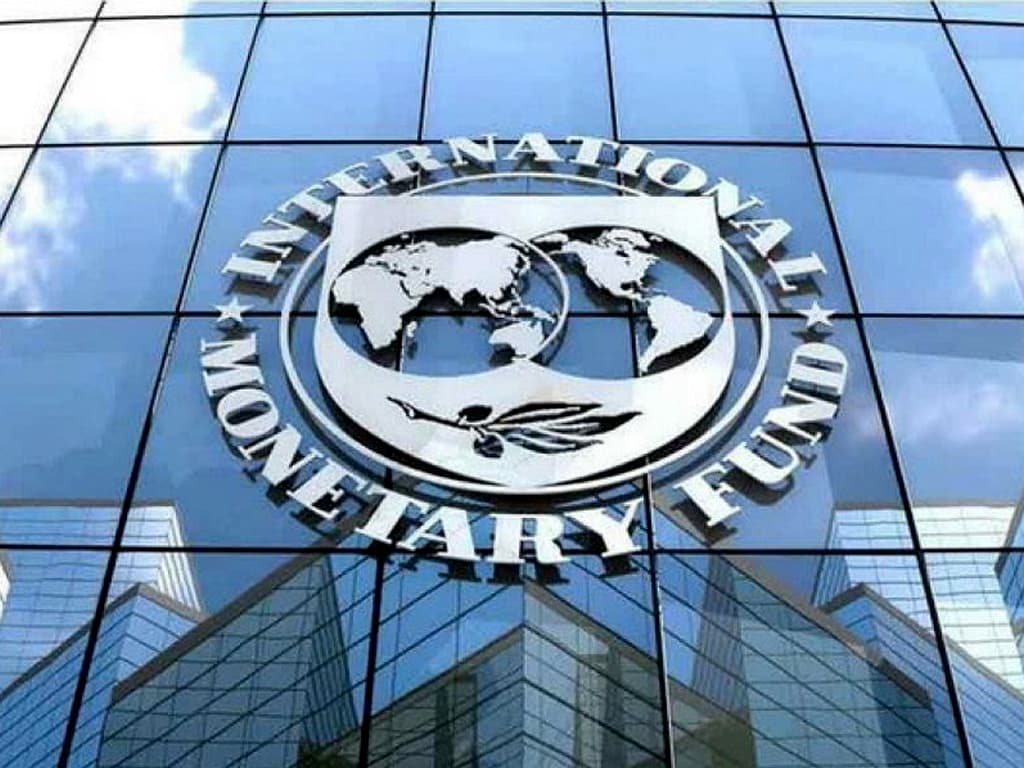The International Monetary Fund (IMF), has backed the Central Bank of Nigeria (CBN) tight monetary policy, exchange rate unification and the moves by the apex bank to build Nigeria’s external reserve.
IMF Directors in their deliberation on Nigeria’s article iv visit in April lauded the actions of the CBN authorities tame inflation and restore market confidence.
The IMF said: “Directors commended the authorities’ actions to rein in inflation and restore market confidence. They stressed the importance of keeping a tight monetary policy stance to put inflation on a downward path, maintaining exchange rate flexibility, and building reserves. Directors welcomed the removal of foreign exchange market distortions and encouraged the authorities to continue improving the functioning of the FX market, including by adopting a well‑designed FX intervention framework.
“Some Directors also said that carefully and sequentially phasing out capital flow management measures when warranted would be important. Directors supported the authorities’ intentions to shift to an inflation targeting regime and recommended strengthening central bank independence and communication to ensure a successful transition. They recommended caution regarding amendments to the Central Bank of Nigeria (CBN) Act that might weaken the central bank’s autonomy. They encouraged further progress in implementing the outstanding recommendations from the 2021 safeguards assessment.”
Also, Directors commended the CBN authorities for restarting the cash transfer program and emphasised the urgency of scaling it up to mitigate acute food insecurity. “They welcomed the authorities’ work on a comprehensive revenue mobilisation strategy including boosting tax enforcement and broadening the tax base. They underscored that mobilising revenue and reprioritising expenditure, including phasing out costly and regressive energy subsidies, are critical to creating fiscal space for development spending and strengthening social protection, while maintaining debt sustainability. Directors appreciated the authorities’ commitment to discontinue deficit monetisation and positively noted progress in macroeconomic policy coordination”, the Fund added.
The Directors also emphasised the importance of close monitoring of financial sector risks. They supported the increase in the minimum capital for banks and urged the CBN to unwind the regulatory forbearance introduced during the pandemic. They acknowledged the recent improvements in the AML/CFT framework and called for sustained action to exit the FATF grey list. They supported the authorities’ efforts to foster financial inclusion and deepen the capital market.
“Directors highlighted the importance of reforms to enhance the business environment, improve security, implement key governance measures, develop human capital, boost agricultural productivity, and build climate resilience. These reforms are crucial to boost investor confidence, unlock Nigeria’s growth potential and diversify the economy, address food insecurity, and underpin sustainable job creation. Directors welcomed the IMF’s capacity development to support the authorities’ reform efforts. Nigeria, under its new administration, has set out on an ambitious reform path to restore macroeconomic stability and support inclusive growth. The authorities reformed the fuel price subsidies, unified official foreign exchange windows, and are focused on revenue mobilisation, governance, and enhancing the monetary and exchange rate policy frameworks, as well as strengthening social safety nets. Over the last decade, limited reforms, security challenges, weak growth and now high inflation have worsened poverty and food insecurity. While Nigeria swiftly exited the Covid-19 recession, per-capita income has stagnated. Real GDP growth slowed to 2.9 percent in 2023, with weak agriculture and trade, and despite the improvement in oil production and financial services. Growth is projected at 3.3 percent for 2024 as both oil and agriculture outputs are expected to improve with better security.
The financial sector has remained stable, despite heightened risks. Determined and well-sequenced implementation of the authorities’ policy intentions would pave the way for faster, more inclusive, resilient growth. Inflation reached 32 percent year-on-year in February 2024, driven mainly by food price inflation (38 percent) and loose financial conditions. With continued monetary tightening, inflation is projected to gradually decline to 24 percent year-on-year at end-2024. The fiscal position strengthened in 2023. Revenues benefited from Naira depreciation and enhanced revenue administration, while expenditure rationalisation and restraint allowed for a one-off wage increase to mitigate the impact of high inflation for public officials. The social cash transfer system has been strengthened and initial payments have been made. Gross international reserves declined in 2023 amid persistent capital outflow pressures. The Naira depreciated sharply after the unification of the official foreign exchange windows in June 2023. Following monetary policy tightening in February and March 2024 and a resumption of FX interventions, the Naira has started to stabilise.
“Near-term risks are tilted to the downside, but determined and well-sequenced implementation of the authorities’ policy intentions would pave the way for faster, more inclusive and resilient growth. Food insecurity could worsen with further adverse shocks to agriculture or global food prices. Adverse shocks to oil production or prices would hit growth, the fiscal and external position, and exacerbate inflationary and exchange rate pressures. Executive Directors agreed with the thrust of the staff appraisal. They welcomed the bold reforms implemented by the new administration and commended the authorities’ focus on revenue mobilisation, governance, social safety nets, and upgrading policy frameworks in the face of Nigeria’s significant economic and social challenges. In view of the downside risks, Directors stressed the importance of steadfast, well‑sequenced, and well‑communicated reforms to restore macroeconomic stability, reduce poverty, support social cohesion, and pave the way for faster, inclusive, and resilient growth”, the IMF added.

